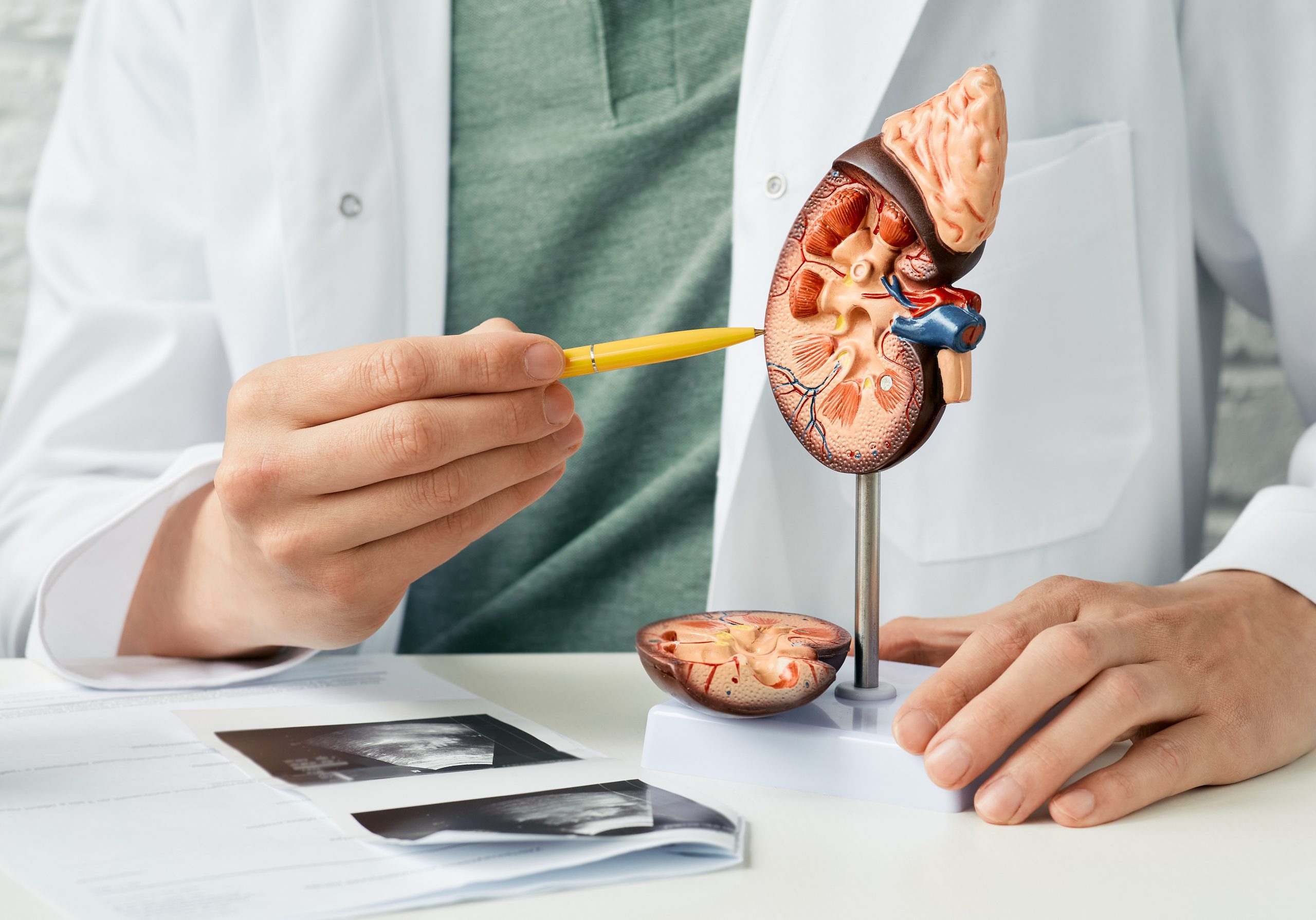Kidney Stones in Children
Children are getting kidney stones more frequently. It used to be that kidney stones occurred almost exclusively in adults, but we’ve been seeing more and more kids with kidney stones in recent decades, especially in teenage girls.

Why do kidney stones form in children?
Everyone is born with the genetic background they inherit from their parents, and that includes certain risk factors for kidney stone formation. This genetic background combines with environmental factors like the fluid we drink, the food we eat, and the climate we live in to determine whether or not we form kidney stones. The younger a child is, the more likely we’ll find a genetic contributor to their stone disease, which is why children with kidney stone require an expert evaluation which often includes genetic testing.

When should a kidney stone be suspected in a child?
Children with kidney stones often present the way adults do, with severe back or side pain often accompanied by nausea/vomiting and visibly bloody urine. But children can also present with more varied symptoms like abdominal pain or even just irritability. Sometimes, we find stones in children who don’t even have clinically visible findings. For instance, we often find stones in children who only have non-visible blood in the urine (microscopic hematuria). Any child with significant pain in the back, flank, or abdominal pain, or even just blood in the urine could have a kidney stone. Imaging of the kidneys and urinary tract using ultrasound or non-contrast CT scan is used to visualize a stone and confirm the diagnosis. Sometimes, children pass stone on their own, and that confirms the diagnosis as well.
What happens once a child is diagnosed with kidney stones?
If the kidney stone is causing an acute problem (i.e. a problem that needs to be delt with quickly), then a pediatric urologist should be consulted to determine the best course of action. Some children with stones need to be brought to the operating room by the pediatric urologist to address a blockage that a stone could create, blocking urine from draining from the kidney. Other times, the pediatric urologist may determine that it is safe to allow the stone to pass on its own, while addressing pain with appropriate medications. Sometimes, medicines can also be used to help a stone pass. If a child has an acute kidney stone event, it’s important to get the opinion of a pediatric urologist. If a stone is passed in the urine or is removed by a pediatric urologist, it is critically important that the stone be sent to a special lab for stone composition analysis to determine what type of stone it is, as different types of stones require different treatment and prevention strategies.
Once the acute kidney stone event has resolved, the child should have an evaluation with a pediatric nephrologist with expertise in kidney stone disease. This evaluation will include blood and urine testing, as well as a special urine test called a 24-hour urine collection. As the name suggests, the 24-hour urine collection requires collection of all urine for a 24-hour period, which is then sent to a lab that specializes in analyzing 24-hour urine samples for risk factors related to kidney stone formation. With expert eyes, the pediatric nephrologist reviews all of the results from the blood and urine testing, stone composition analysis, and 24-hour urine to determine which risk factors for stone formation the child has. The pediatric nephrologist may also decide that genetic testing is warranted to further determine the cause kidney stones.
How can kidney stones be prevented in children?
Drinking more water is very important for preventing all kidney stones. Beyond that, each individual’s risk factors need to be determined based on the results of all of the above testing. Once the pediatric nephrologist has reviewed and interpreted all of the results, he or she will come up with a prevention strategy ideally suited for the individual child. The prevention strategy can include specific recommendations for fluid intake, foods to avoid or eat more of, or even medications.
What happens next?
Children with kidney stones are followed closely to ensure that the prevention strategy is working to prevent formation of new stones. This is usually done with ultrasound of the kidneys and urinary tract performed over certain time periods. Sometimes other lab work is also performed to determine blood or urine chemistry changes that may be important for kidney stone formation. Children with more complicated forms of kidney stone disease may need a second opinion from a specialist with extra expertise in pediatric kidney stone disease.
Stay Involved
Nearly 10% of the United States population has suffered from stones. You can help connect with our community and support our mission to accelerate kidney stone research.
Complete the form to learn more about KSC and its initiatives.
By submitting this form, you consent to receive educational emails, research updates, and event invitations from Kidney Stone Collaborative. We will never sell or share your information with third parties. You may unsubscribe at any time.
Information provided is for educational purposes only and is not a substitute for medical advice. Please consult a qualified healthcare professional for personal medical concerns.

